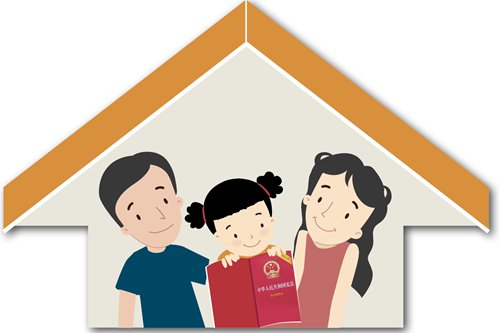
(Photo: Global Times)
Editor's note:
During China's annual two sessions - the National People's Congress (NPC) and the Chinese People's Political Consultative Conference (CPPCC), lawmakers and political advisers submitted thousands of proposals and motions concerning every aspect of the country's development and the people who are living through it. The Global Times selected nine hot topics that we believe most concern ordinary Chinese people.
Every household having a printed Constitution
China's latest amendment to its Constitution is regarded by NPC deputies as keeping pace with the times and of big significance to the country. NPC deputy Shi Zewu, also deputy head of the Buddhist Association of China, advocated compiling and printing an official book introducing the amended Constitution. He also suggested every family in China should have a copy of the book to study so as to increase the public's legal awareness and to help them understand how their life and work are related to and affected by the Constitution. This was echoed by several other NPC deputies.
Recognizing brain death as legally dead
After repeatedly calling for the legal recognition of brain death in 2015 and 2016, Chen Jingyu, deputy head of the Wuxi People's Hospital in Jiangsu Province and a lawmaker, raised his proposal again that the country ought to recognize brain death as being legally dead. Chen regards brain death as an irreversible condition, with many medical resources consumed during the rescue process, which also adds financial burdens on desperate families.
Raising the individual income tax threshold
Seven years have passed since China raised the threshold for individual income tax to 3,500 yuan in 2011. Raising the threshold has been proposed several times at annual two sessions. This year, Dong Mingzhu, NPC deputy and chairperson of Gree Electric Appliances, advised that the threshold for individual income tax be raised to 10,000 yuan, seeing that people born in the 1980s are burdened heavily with raising children and home purchases with growing living costs. She also suggested that taxes on high-income citizens should be raised to narrow the gap between the rich and poor.
Letting people with a foreign nationality keep their Chinese nationality
While nationality becomes a means for other countries to fight for talents, Zhu Zhengfu, a lawyer and lawmaker, advised the government to revise China's Nationality Law to retain and only recognize the Chinese nationality of Chinese people who also have foreign nationality unless they apply to give it up. The current law says that those who have obtained a foreign nationality will automatically lose their Chinese nationality, which Zhu interprets as "giving up our talents to others."
Criminalizing behaviour that insults China's national dignity
Since last August, there have been several young Chinese posing for photos next to war remembrance sites while wearing replica WWII Japanese military uniforms. Over 30 political advisers in the arts and entertainment sector, including Jackie Chan, proposed that China put forward a special law to protect China's national dignity and criminalize behaviour that insults national dignity, heroes and martyrs, or glorifies Japanese militarism and fascism.
Cancelling family planning policies
In spite of the new two-child policy enacted in 2016, China's birth rate in 2017 dwindled even lower than in previous years under the old one-child policy. Sensing that the two-child policy has failed to achieve a certain effect, Huang Xihua, a NPC deputy from Guangdong Province who is concerned about the population, advised the government to lift all restrictions on family planning and put forward proper measures to relieve burdens on couples of childbearing age so as to enhance the balanced long-term development of China's population.
Redrawing the central heating dividing line
A freezing winter in the southern part of China this past year caused many living in the south to feel envious of their northern peers, who enjoy central heating in their homes to the north of the Huai River and the Qinling Mountains. In recent years, people living in southern China have experienced many hard winters. Zhou Hongyu, NPC deputy and a professor from Central China Normal University, proposed to redraw the central heating dividing line and move it southward along the Yangtze River, including Shanghai, to encompass more regions.
Raising Chinese university tuition fee
Given that the estimated average tuition fee of Chinese universities ranges from 4,000 yuan ($632) to 6,000 yuan per year, which is far lower than the cost of an average Chinese kindergarten (about several thousand yuan per month), Meng Anming, a professor at Tsinghua University and CPPCC member, suggested that the Chinese government set up a mechanism to increase the level of its tertiary education fees. Many netizens expressed their discontent toward this idea, instead calling for discounted kindergarten tuition rather than "ripping off" college students.
Increasing support for young directors
As China's film market continues to boom, young directors are struggling to inherit the industry from veteran filmmakers. Feng Xiaogang, a well-known Chinese film director and a CPPCC member, calls for more support from the State to grant special funds to train fledgling filmmakers. Feng believes that a lack of fresh, young talent is the key reason behind China's low-grade film products. It is predicted that China's film market could become the largest in the world by 2020.


